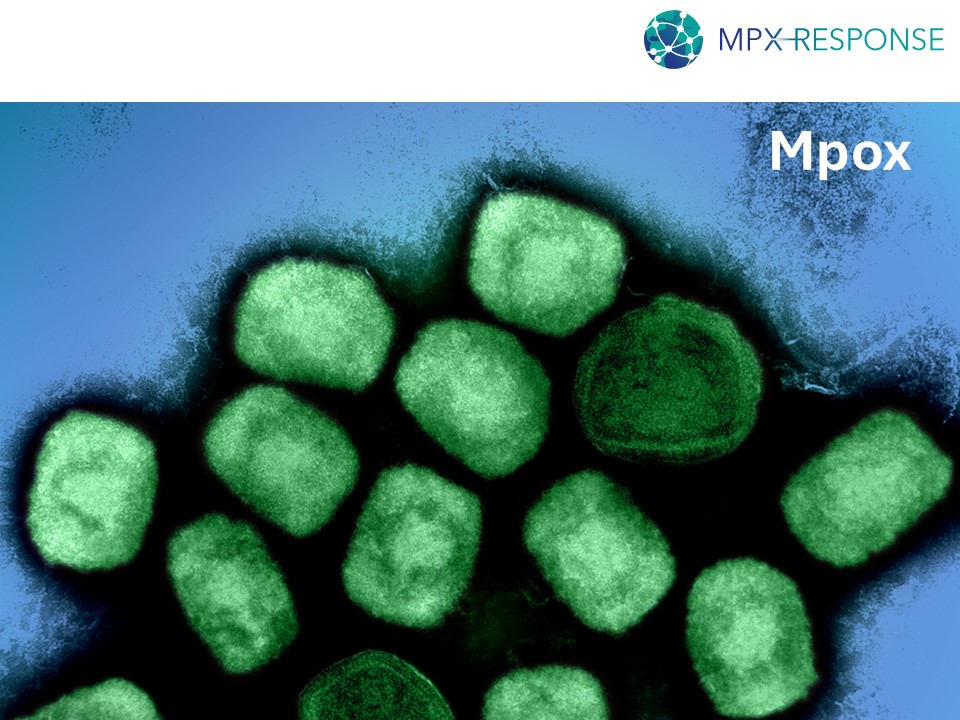A newsletter will be prepared. This newsletter will be addressed to the UNITY study clinical centers, regulatory bodies including concerned ethics committees and the study participants.
With first inclusions starting in 2023 in the three countries, Argentina, Brazil and Switzerland, the investigators expect primary completion of the study by mid-2025.

Tecovirimat for mpox: UNITY trial continues, results expected mid-2025
Last updated on 07 January 2025
The essential
UNITY investigators announce trial will continue as planned, with top-line results expected mid-2025. This announcement follows the recent news release of NIAID/NIH on the STOMP trial in which they announced their decision to halt enrollment due to the absence of an efficacy signal for tecovirimat observed in an interim data analysis
The context
In May 2022, a major global outbreak of mpox (Clade IIb) spread worldwide. Globally, while many regions reported declining cases after 2022, the recent spike in Africa and emergence of a new viral clade emphasize the disease’s ongoing challenges and the need for robust data on new or repositioned treatments. In particular, tecovirimat, an antiviral initially developed for smallpox, has been evaluated for mpox treatment in various clinical trials like PALM007, STOMP, and UNITY.
Interim results for STOMP trial
The Study of Tecovirimat for Human Mpox Virus (STOMP) trial began in September 2022 as part of the U.S. whole-of-government response to the clade II mpox outbreak. The NIAID-
sponsored randomized study evaluated tecovirimat in 7 countries affected by global clade II mpox outbreak, notably the USA.
A planned interim analysis at 75% of the study’s target enrollment reported that tecovirimat did not reduce the time to lesion resolution or have an effect on pain among adults with mild to moderate clade II mpox and a low risk of developing severe disease.
Nevertheless, the study confirmed tecovirimat’s strong safety profile.
Following these results, STOMP enrollment closed on November 27, 2024, based on the study’s Data Safety and Monitoring Board (DSMB) recommendation to stop further enrollment of participants who were being randomized to tecovirimat or placebo. Given the lack of an efficacy signal, NIAID also closed enrollment into an open-label study arm for participants with or at elevated risk of severe disease that was not designed to estimate the drug’s efficacy. However, the Centers for Disease Control and Prevention (CDC) maintains an expanded access investigational new drug (EA-IND) protocol for mpox treatment outside of research settings. The protocol is available for individuals with severe immunocompromising conditions, including people with advanced human immunodeficiency virus (HIV), for whom the role of tecovirimat treatment has not been fully established through a clinical trial (https://www.cdc.gov/mpox/hcp/clinical-care/tecovirimat.html).
These results complement previous analyses from the PALM007 study in which tecovirimat was assessed as safe but did not improve lesion resolution. This study was conducted in a different population, a majority of whom were children, in the Democratic Republic of the Congo (DRC), and on a different mpox clade (Clade I).
UNITY trial can provide definite results on tecovirimat
The international trial UNITY is sponsored by the ANRS Emerging Infectious Diseases (MIE) and part of the EU-funded MPX-RESPONSE project. The study is evaluating tecovirimat with a similar study design to PALM007 and STOMP in Argentina, Brazil and Switzerland. As in the STOMP trial, patients with or at risk of severe disease are not randomized and receive tecovirimat through an open-label arm.
Following early termination of the STOMP trial, the sponsor of UNITY consulted the DSMB on December 16th, 2024.
« Following the review of the totality of evidence, including emerging data from other trials with their unique patient populations », the DSMB recommended on December 31st, 2024, that the UNITY trial continues as planned. The sponsor, after consulting the coordinating country investigators of the study, decided to follow DSMB recommendation. This decision was taken considering the robust safety profile of tecovirimat confirmed in STOMP and PALM007, the absence of any other approved antiviral treatment, the differences in population between the studies (proportion of HIV subjects, age and severity), and the imminent full inclusion. To date 491 patients have been enrolled in the UNITY study, 405 randomized in the double-blind component and 86 in the open-label component. The target for inclusion in the randomized arm is 500 participants.
To date, tecovirimat is still being studied in other ongoing randomized clinical trials, PLATINUM-CAN (Canada) and EPOXI (EU), and remains authorized for emergency use in a number of countries, as there is currently no specific treatment for mpox.
Next steps for UNITY
About
About UNITY
UNITY (NCT05597735) is a randomized, placebo-controlled phase 3 trial conducted in South America and in Switzerland, to promote inclusiveness and ensure participation of countries highly affected by the 2022 outbreak. The objective of UNITY is to evaluate whether tecovirimat is an effective and safe antiviral in the treatment of mpox in adults and adolescents (14 years old and older). UNITY is sponsored by the ANRS Emerging Infectious Diseases (France) with partners: Fundação Oswaldo Cruz – Fiocruz (Brazil), University of Genève (Switzerland), Fundaçión Huésped (Argentina), Oslo University Hospital (Norway), Assistance Publique – Hôpitaux de Paris (France), University of Basel (Switzerland).
For more information: please visit ClinicicalTrials.gov and follow MPX-RESPONSE news.
About MPX-RESPONSE
UNITY is one of the three clinical trials of MPX-RESPONSE project, to evaluate therapeutic candidates against mpox in various contexts. Launched in August 2022, this EU-funded consortium, coordinated by Inserm/ANRS MIE, is committed to evaluating safe and effective treatments that can ease the mpox burden in Central Africa and address the milder form of the virus that circulated globally.
This project has received funding from the European Union’s Horizon 2020 research and innovation programme under Grant Agreement No. 101115188. UNITY has also received support from the State Secretariat for Education, Research and Innovation SERI in Switzerland, was conducted with the support of SIGA.
For more information: https://mpx-response.eu/
